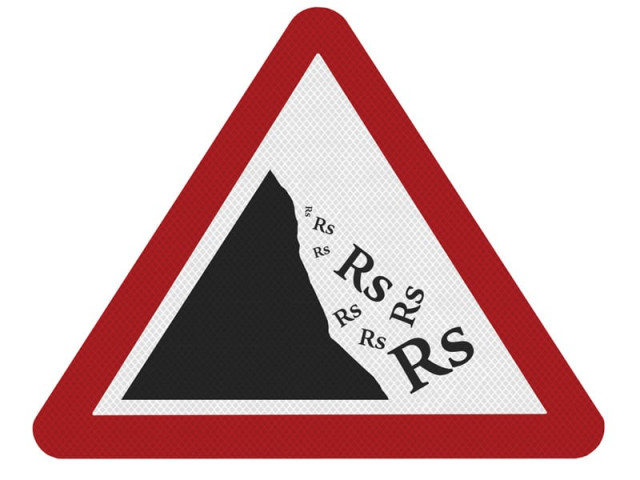Inflation drops to 22-month low on new formula
Experts believe State Bank may cut policy rate.

Inflation drops to 22-month low on new formula
Inflation, according to the benchmark consumer price index (CPI), the nation’s most-watched cost-of-living monitor, slipped to 10.46 per cent in September, the Federal Bureau of Statistics (FBS) reported on Monday.
September’s inflation was in line with financial market forecasts. “The primary factor behind the reduction in inflation is the change in the base year. If calculated on the basis of the old methodology, it would be around 12 per cent,” said Muzammil Aslam, who works as an economist for JS Global Capital Limited.
He said that instead of yearly inflation, monitoring the monthly changes in the rate would be more relevant after the change in the base year.
On a month-on-month basis, inflation rose by 1.1 per cent in September over August. Onion prices increased by 40 per cent, fresh vegetable prices 21.7 per cent and tomato prices 15.7 per cent in September, according to FBS data.
The government has changed the inflation calculation methodology to depict changes in spending practices and culture. The new methodology was adopted on the basis of a statistical survey conducted in 2007-08.
The government has increased the coverage of cities and essential items for the computation of inflation under the new methodology. The number of cities has been increased from 35 to 40 and the number of essential items has been increased from 374 to 487.
Shabbar Zaidi, a Karachi-based chartered accountant, said inflation was coming down and the State Bank of Pakistan might reduce its policy rate by 50 basis points.
The central bank will review the monetary policy on October 8. The market is expecting a cut in the discount rate, which is the rate at which it lends money to commercial banks.
According to FBS data, prices of food and non-alcoholic beverages increased by 9.7 per cent in September in comparison with last year’s corresponding period. Prices of non-perishable food items increased by 14.3 per cent, FBS reported, adding that costs of clothing and footwear rose by 14.9 per cent.
Housing, water, electricity, gas and fuel charges soared by almost eight per cent, it said. The cost of health services increased by 11.5 per cent, transport 15 per cent and restaurant and hotels 18.3 per cent in September.
Average inflation in the first quarter (July-September) remained 11.5 per cent despite the change in the base year.
Talking to The Express Tribune, Asad Sayeed, who works for Collective for Social Sciences Research, a Karachi-based independent research institution, said that the upward trend in prices had somewhat stabilised. “Still, there is volatility in prices, particularly of food items.”
He said that even though budget financing through printing more notes remained negative at the end of the fiscal year, volatility in international food prices and the removal of subsidies would stoke up inflation.
International lenders have decided to block Pakistan’s budgetary support loans after it opted to sour its relations with the International Monetary Fund (IMF). Experts believe the government may require over Rs1,380 billion to finance its budget deficit. The international budgetary loans blockade can shift the entire financing onto the domestic market.
Published in The Express Tribune, October 4th, 2011.



















COMMENTS
Comments are moderated and generally will be posted if they are on-topic and not abusive.
For more information, please see our Comments FAQ